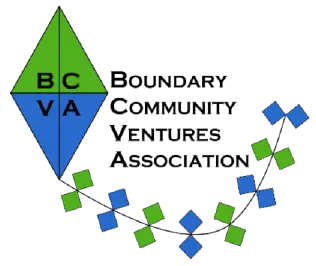
The Boundary region in British Columbia, known for its challenging mountainous terrain and seasonal roads, presents unique logistical hurdles in its food supply chain. Despite this, the region thrives with diverse and skilled local food producers.
About the Boundary food region
The Boundary region of British Columbia, extending to the vicinity of the Big White Ski Resort, presents its own set of unique challenges within the food supply chain, shaped by its distinct geographical and climatic features.
Situated in southeastern British Columbia, the Boundary region is characterized by a varied landscape that includes mountainous terrain, valleys, and rich forested areas. This diverse topography, while offering stunning natural beauty and recreational opportunities, especially around popular destinations like Big White Ski Resort, also complicates agricultural activities and food distribution. The region’s higher altitude and cooler climate present a different set of growing conditions compared to other parts of the province, which affects the types of crops that can be successfully cultivated and the length of the growing season.
Transportation and logistics are significant challenges in this area. The mountainous terrain and remote nature of many communities in the Boundary region make transporting goods more complex and costly. This is particularly impactful for smaller, local food producers who may find it difficult to access larger markets or import necessary supplies. The region’s infrastructure, while capable of supporting tourism and recreational activities, may not always cater adequately to the needs of the agricultural sector.
Economic viability is another concern for food producers in the Boundary region. The costs associated with farming in more remote and challenging environments, combined with competition from larger, more centralized agricultural operations, can place financial strains on local producers. This scenario calls for innovative approaches to farming and food distribution, possibly leveraging the area’s strong tourism sector to create unique market opportunities.
Climate change poses additional risks, with potential impacts on weather patterns and water resources. This could affect both crop yields and the natural ecosystems that are integral to the region’s environmental health and agricultural productivity. Balancing the needs of agriculture with environmental conservation is therefore crucial.
Lastly, there is a cultural dimension to consider. The Boundary region, with its mix of communities and proximity to recreational areas like Big White, has a unique cultural and social fabric. Integrating local food production more closely with community needs and tourist activities could create new opportunities for sustainable growth and resilience in the food supply chain.
Overall, addressing the food supply chain challenges in the Boundary region requires a multifaceted approach that takes into account the region’s unique geographical features, economic pressures, and the impacts of climate change, all while leveraging the potential synergies between agriculture, community needs, and tourism.
About the Boundary Community Ventures Association

At its foundation, Boundary Community Ventures Assn (BCVN) is an innovative non-profit dedicated to promoting economic growth within the Boundary area through various initiatives, with the Boundary Food Hub being its flagship program. This venture uniquely combines business acumen with social and environmental objectives, functioning as a socially responsible enterprise.
The Boundary Food Hub’s primary mission is to reinforce the local food economy by nurturing entrepreneurship and collaborating to establish necessary infrastructure and processes. Central to this mission are several facilities: a shared-use incubator kitchen situated in Greenwood, a meat processing unit in Rock Creek, and a Greenwood-based community food safety lab. These hubs offer critical resources like affordable commercial kitchen space and specialized services, catering to the needs of food business entrepreneurs.
Beyond providing these physical resources, BCV also extends technical guidance and business consulting to enhance the market success of food processors in the region. The overarching goal of BCV is to reposition the Boundary area as a prominent food producer, reversing its current trend of being a major food importer.